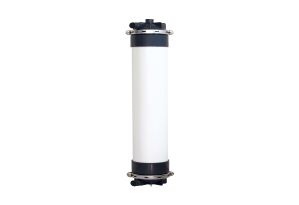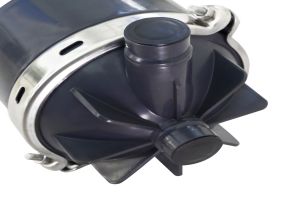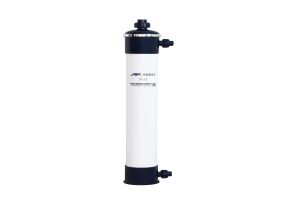The Key Role of Ultrafiltration Membranes in the Food and Beverage Industry



Ultrafiltration membranes play a crucial role in the modern food and beverage industry as an indispensable technology. This article explores their applications and significance in this sector.
1. Technology Background and Principles
Ultrafiltration membranes operate by selectively separating substances based on their molecular size, typically ranging from 1 to 100 nanometers. This capability allows them to effectively remove dissolved solids, bacteria, viruses, and large organic molecules from water, while retaining dissolved inorganic salts and trace elements.
2. Application Areas
In the food and beverage industry, ultrafiltration membranes are widely used in several key areas:
Concentration and Separation**: They are employed for concentrating liquids such as fruit juices and dairy products, enhancing product concentration by removing water while retaining nutritional components and flavor compounds.
Protein Separation**: In beer production, ultrafiltration membranes are utilized to separate and purify proteins from malt, thereby improving beer stability and mouthfeel.
Clarification**: They effectively remove turbidity and microorganisms from beverages, enhancing clarity and quality.
Wastewater Treatment**: Used in industrial processes, ultrafiltration membranes treat wastewater by separating pollutants and reclaiming water resources, thus reducing environmental impact.
3. Advantages and Benefits
Hydranautics Ultrafiltration membranes offer several advantages over traditional filtration methods:
Efficiency: They operate efficiently at relatively low pressures, saving energy and costs.
Selectivity: Membrane pore sizes can be tailored to achieve precise separation and concentration effects as required.
Nutrient Retention**: They preserve the nutritional integrity and organic compounds of food products, maintaining taste and nutritional value.
4. Real-World Applications
Examples illustrate successful applications of ultrafiltration membranes in production, showcasing improved product quality, cost savings, and significant wastewater treatment benefits.
5. Technological Trends and Future Outlook
Looking ahead, as filmtec uf membranes technology continues to advance and innovate, its applications in the food and beverage industry are expected to expand further. Integration with advanced membrane technologies such as nanofiltration and reverse osmosis will likely enhance processing efficiency and product quality.
Conclusion
Dupont uf membranes, as efficient and environmentally friendly separation technologies, play a critical role in enhancing product quality, efficiency, and sustainability in the food and beverage industry. With ongoing technological advancements, ultrafiltration membranes are poised to bring new breakthroughs and opportunities to this sector.





 Language
Language






 Network Supported
Network Supported